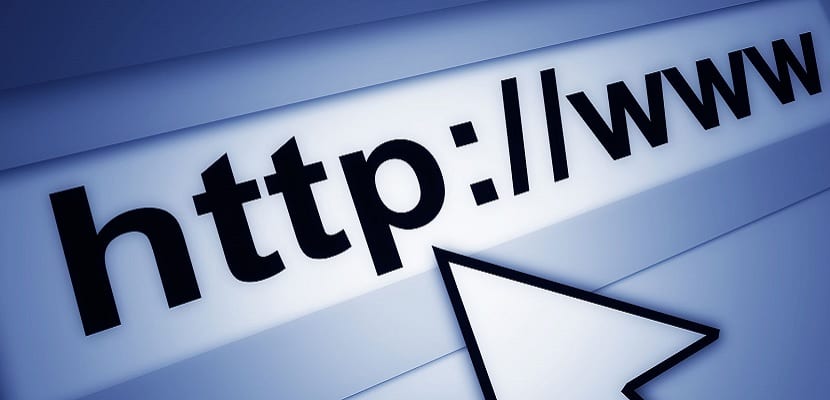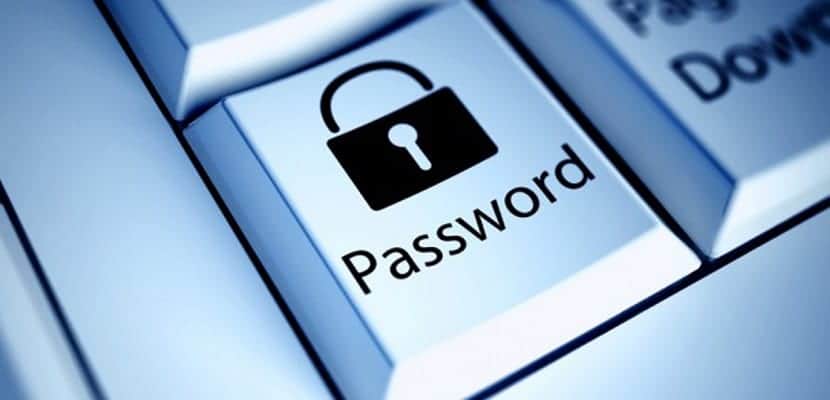Internet It is a tool that most of us use almost constantly on a daily basis, in our work, in our personal life and of course in our leisure time. For quite some time we have also been accessing the network of networks through not only our computers, but also from our smartphone, tablet or even wearable devices, among which smartwatches stand out without a doubt. Nevertheless we continue to take little or no care in the network of networks.
And it is that despite the hundreds of advice that we receive almost daily so that we are careful with the emails we receive in our email inbox, the danger of using public WiFi networks for certain things or the care that we must If we have our private information, we continue to make mistakes practically every day that put our security in clear danger.
Next we are going to show you 10 reckless things that almost all of us commit on the Internet and that you should solve right now so as not to put yourself at risk in a somewhat absurd way. Get ready, we are going to start and it is important that you pay attention to everything that you are going to read next.
-
Access public WiFis without any care
Public WiFi networks are growing and it is becoming easier to find them anywhere and anywhere. For example, more and more cities have their own public WiFi network that can be used for free in almost any corner of the city. Unfortunately These networks are used without any care, accessing through them for example our financial data.
Many users are not aware of the danger that this poses, but to give you an idea many experts say that "Even a 7-year-old girl is capable of spying on your communications if you surf connected to a public network".
If you connect to a public WiFi network, do not visit your bank, do not reveal passwords and be very careful which web pages you visit because getting your private and personal information stolen is much easier than you think.
-
Open attachments that we receive in the mail from unknown addresses
Every day we receive hundreds of different messages in our mail, many from unknown addresses, some of them with attachments. For some reason that is difficult to explain, many users continue to open these files, without even submitting some security tests first.
Of course in most things it contains malicious software. Our recommendation, already repeated hundreds of times not only by us but by the whole world, is not to open attachments from email addresses that we do not know.so of which we clearly suspect. It goes without saying that no attachment should be opened, except for exceptions, of the emails that accumulate in the Spam folder.
-
Click on the shortened links without any control

Many are the websites that allow us to shorten the links, sometimes to use them in a more comfortable way, but in most of the time to hide malware or pishing.
Each time one of these links is pressed, it must only be done if we are sure of what we can find on the other side and if we also have some confidence in the web that has placed it, otherwise the best advice is not to click on them .
-
Ignore or even decline security updates
Updates are usually presented on any device at the most inopportune moment, which means that on many occasions we reject them and do not install them. However, it is essential that we install any update and even more so if it improves security. If a manufacturer or developer releases a security update it is not a whim or a way to annoy us, but it is usually interesting and sometimes closes security holes preventing future problems.
-
Believe that an antivirus is not necessary
An antivirus is one of the most essential programs that must be installed on any computer. Believing that you can live peacefully and safely without one is a dream that one day someone will sooner or later wake you up, infecting your entire computer and getting you into a serious problem, from which it will be very difficult to get out.
If you don't have any antivirus installed, do yourself a big favor and install one right away, even if it's one of the many free ones that many companies offer.
-
Use the same password for multiple services

More and more applications or services ask us to establish a password. It is obvious that you have to try not to use the same password for all services, however many users continue to do so.
Using the same password on our credit card, on our smartphone or to access our email, can be very comfortable, but without a doubt it is to make things very easy for any cybercriminal to steal our private data and even to loot our bank in the worst case.
-
Ignore the increasingly common "Connection insecure" messages
The messages of insecure connection are seen more and more frequently and unlike what many may think they are not to decorate and do not come in red because it is just a warning without too much importance. If our web browser shows us a message of this type it is because that web page can infect our device with malicious content and because your browsing on it is not entirely safe.
Accessing these types of pages by skipping the warning message is reckless and often leads to a significant problem.
-
Do not make backup copies
Make Backup It is tremendously simple in most cases, although we will need time above all to do it. However, it can be tremendously useful in the event that we suffer a loss or theft of our data.
Our advice is that if you don't have it, make a backup copy of all the content on your computer, tablet or smartphone right away so you don't have to regret it for a while.
-
Download apps anywhere and anywhere without any precautions

Downloading applications outside of Google Play, the App Store or any other official application store is a great danger These unofficial software stores are usually the ideal place to shelter malicious applications. If you want to live quietly and above all safe, download applications only from official stores or at least those with very high reliability.
-
Telling your whole life, in great detail, on social media
Although we have already repeated it hundreds of times, we must repeat it one more time and that is it is nothing positive to tell our lives in great detail through social networks. By saying at every moment where we are we are making it very easy for the bad guys.
As far as possible, you should avoid "locating" yourself in each place and that is because if you announce your 15-day vacation anywhere, if a criminal reads your Facebook wall or your Twitter timeline, they will already know that they will have via free in your house.
In addition to these 10 reckless acts, we usually commit many more daily and continuously. In case of all these you do not commit any, which I find quite difficult, surely you are one of those who leaves their children or nephews their smartphone, without any limits and without the parental control activated. That can be a bigger problem than any of the recklessness that we have shown you and that is that a child can commit more recklessness in a minute than you in a whole month.
If you don't want to have any problems and always stay safe, try to do things well on the Internet and watch everything you do very well, because recklessness can sometimes turn out to be a big problem.
How many reckless things we have seen in this article do you commit in your day to day?.
